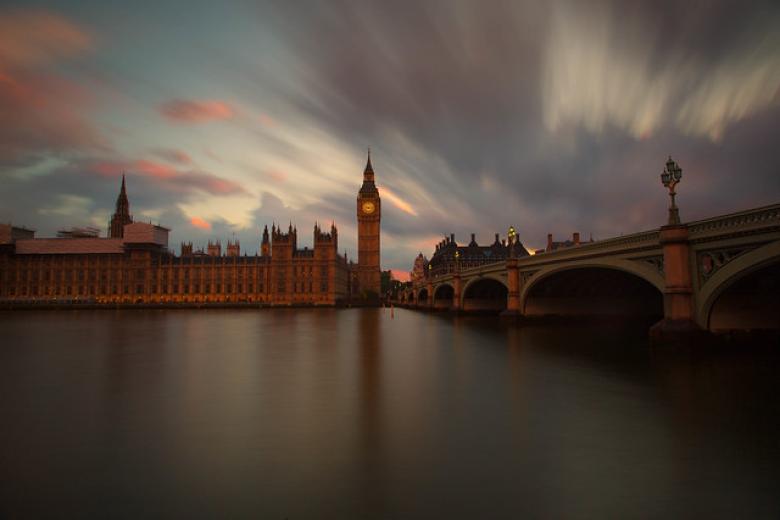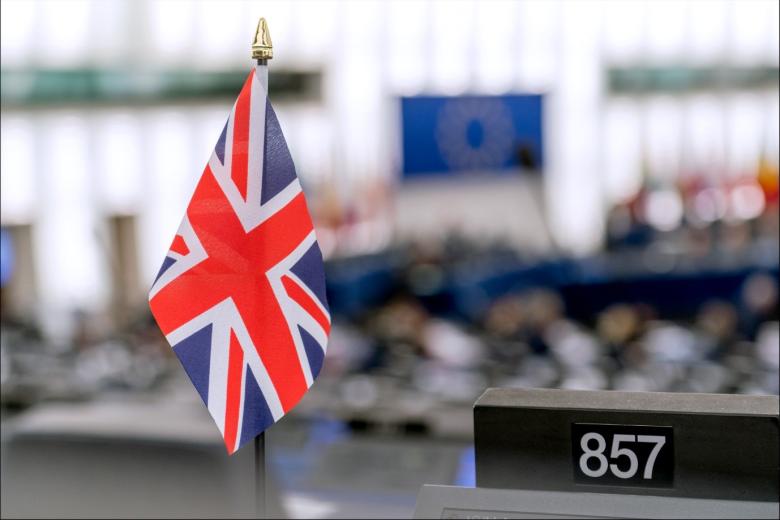Chimera
In the hour of need, the United Kingdom is saddled with elected officials who fail to match the moment.
Summary: Prime Minister Theresa May has no reason to celebrate, as No Deal remains an option and is becoming increasingly likely. The temporary renegotiating gambit will fail, as the EU27 will stand firm. Parliament will need to restore its authority and bring maximum pressure to bear if a disorderly, deeply damaging withdrawal of the UK from the EU is to be averted.
---------------------------------------------------------------------------------------------------
On Tuesday night, Prime Minister Theresa May breathed a sigh of relief. Again, one might say. Having survived an ultimately insipid leadership challenge by the hard right of her Conservative Party, the catastrophic defeat of the EU/UK Draft Withdrawal Agreement and an equally meaningless no-confidence motion in the House of Commons tabled by a woefully ineffective Labour opposition, Mrs May’s luck by default kept her going through another evening of twists and turns. In a series of procedural votes, motions calling for a legally binding exclusion of the No Deal scenario were rejected by a majority of Parliament (including a version mandating an extension request under Article 50 TEU, introduced by Labour MP Yvette Cooper; for the full record of proceedings, see here, from p2)
The House of Commons carried the amendment tabled by Sir Graham Brady (Conservative), chairman of the influential 1922 Committee of Conservative Party backbenchers (to find the amendment in the Order Paper go here, followed by a search for amendment (n)). It essentially instructs Prime Minister May to seek alternative arrangements to the much-despised Irish backstop. Just to remind you, the backstop is the compromise solution devised by EU and UK negotiators to prevent the restoration of a hard customs border between the Republic of Ireland (which will remain an EU member, no matter what Nigel Farage may have to say about this) and the UK province of Northern Ireland (which will leave the EU on 29 March 2019, alongside the rest of the country).
No reason for relief
Whilst the Prime Minister may very well feel relieved, she should not be. The fundamental parameters have not changed. By default (and by virtue of the Art 50 notice and the European Union (Withdrawal) Act 2018), the UK is leaving the EU. The UK remains in a disadvantageous negotiating position. Economists are still predicting a catastrophic loss of up to 10% of the country’s GDP if the UK leaves without a deal. The EU has stated, time after time, that it will not waver in terms of the Irish backstop. Considering its success in forcing UK negotiators to climb down from previous grandiose promises to the voting public back home, it would be wise for London to pay heed to what the EU is saying.
Given the dynamics of the EU27’s relations, it would be difficult to imagine a significant number of EU Member States seeking to accommodate London. The principle of the Single Market and the integrity of the EU’s acquis communautaire, paired with the understanding that a non-Member State cannot be permitted to be better off than a Member State, quite simply trumps short-term considerations. This was the case on 24 June 2016 and remains the case on 30 January 2019. Whilst the Prime Minister’s cabinet ministers and spokespeople may very well project optimism, the prospect of a compromise on the backstop – let alone a legally binding one – remains a chimera.
It’s about the essentials
Suppose the EU27 do say no. After all, why would they give into UK demands? Britain holds the substantially weaker set of cards in its hands. The European Union, needing to demonstrate resolve and decisiveness after a series of crises, would be misguided to give up that advantage at the negotiating table. Reopening the Draft Withdrawal Agreement now would provide a playbook of brinksmanship to every rabble-rousing populist seeking to win power on a wave of antipathy towards the European Union. The likes of Órban and Kaczynski would be handed a weapon to further sabotage the bloc.
Mrs May cannot be permitted to win, no matter the short-term cost. Whilst she will seek a legally binding codicil, the EU Member States cannot be seen as caving in to her demands, as the Brexit gamble (and that’s what it is) goes to the very raison d’être of the EU: the indivisibility and integrity of the Single Market, and the uniform application of its legal order. Contrary to the extremist rhetoric levelled by the Conservative Party’s hard right, the problem with the position is not that it amounts to bullying on part of the EU – but the fact that the United Kingdom pretended to be able to obtain a beneficial agreement with the EU27 without acknowledging the basic rationale underpinning the European Union. Why else install ideologues like Davis, Raab and Barclay as Brexit Secretaries, in lieu of intelligent and determined elected officials deeply familiar with the EU’s legal framework?
This brings us back to square one. Parliament primarily consists of MPs that favoured the Remain option in the 2016 national referendum. Where does that leave us? No Deal remains a realistic possibility and, unfortunately for British citizens, has gained in currency in the last 48 hours. It is enshrined in UK law unless an alternative is enacted by Parliament before 29 March 2019. Once Theresa May has lost her bid to renegotiate her deal (even if armed with a face-saving letter or explanatory memorandum from the EU27), she has pledged to return to Parliament upon not reaching a deal by 13 February. That would probably be Parliament’s final chance to assert itself in time to steer the ship of state from the monumental iceberg in front of it.
Fork in the road
It is the attitude of MPs going forward that represents the proverbial fork in the road: if MPs examine the threat posed by a No Deal Brexit and the generational damage it could do to the country’s economy, they may very well recognize that the situation warrants a way out: a second national referendum seeking a fresh authorization from the people. The campaign would be divisive, vitriolic and aggressive – but it would be fought against the background of a failed attempt to negotiate a favourable deal for the United Kingdom. In such a scenario, the Remain option would likely prevail – albeit that is contingent on it taking off the gloves and making its message much more accessible than in 2016.
Conversely, if MPs merely look at their short-term political prospects, No Deal will happen. Parliament has blinked far too often during this arduous, lengthy process to exclude the possibility of a disorderly withdrawal of the UK from the European Union. What used to be a chimera in June 2016 has now become a realistic possibility. It would be a stunning avowal of failure on part of Her Majesty’s Government and the opposition Labour Party (whose leader Jeremy Corbyn has cut a particularly sorry figure in this sordid tale).
The Prime Minister’s delaying tactics must be called out – she is playing with the good faith and credit of the United Kingdom, recklessly imperilling the country’s international standing and its economic well-being, as well as the livelihoods of the country’s citizens, especially the young. All of this because of the majority of Parliament failing to stand up to an all-too-easy and false narrative about “the people” having spoken “loud and clear” – with a sizable faction within the governing Conservative Party harbouring misplaced delusions of past imperial grandeur.
One can only hope that cooler and pragmatic heads do prevail in mid-February. If they do not, then in 57 days, the United Kingdom may very well start to discover what a lapse of judgment the Leave vote truly was. Democracy is a covenant, not a suicide pact. Equally, a chimera is not a plan for government. It certainly is no plan for a country’s future.
Image by Flickr, Misko
| More blogs on Law Blogs Maastricht |
-
Faites vos jeux
Britain gets a hard-fought extension, with incalculable consequences.

-
Change of course?
With options running out before the United Kingdom faces yet another critical deadline, Prime Minister Theresa May tries one last (desperate) gamble to “save Brexit” – reaching out to the Labour Party. Will it be successful? Which are the options remaining on the table? What could happen next? Here...

-
The Ides of March: The United Kingdom gets one last chance. Will it use it?
Staying just a little bit longer? Or for good?
Summary: With the European Council throwing a lifeline to the United Kingdom, all options are back on the table. Rather than taking back control, the United Kingdom now finds itself dependent on the remainder of the European Union – with the absence of...